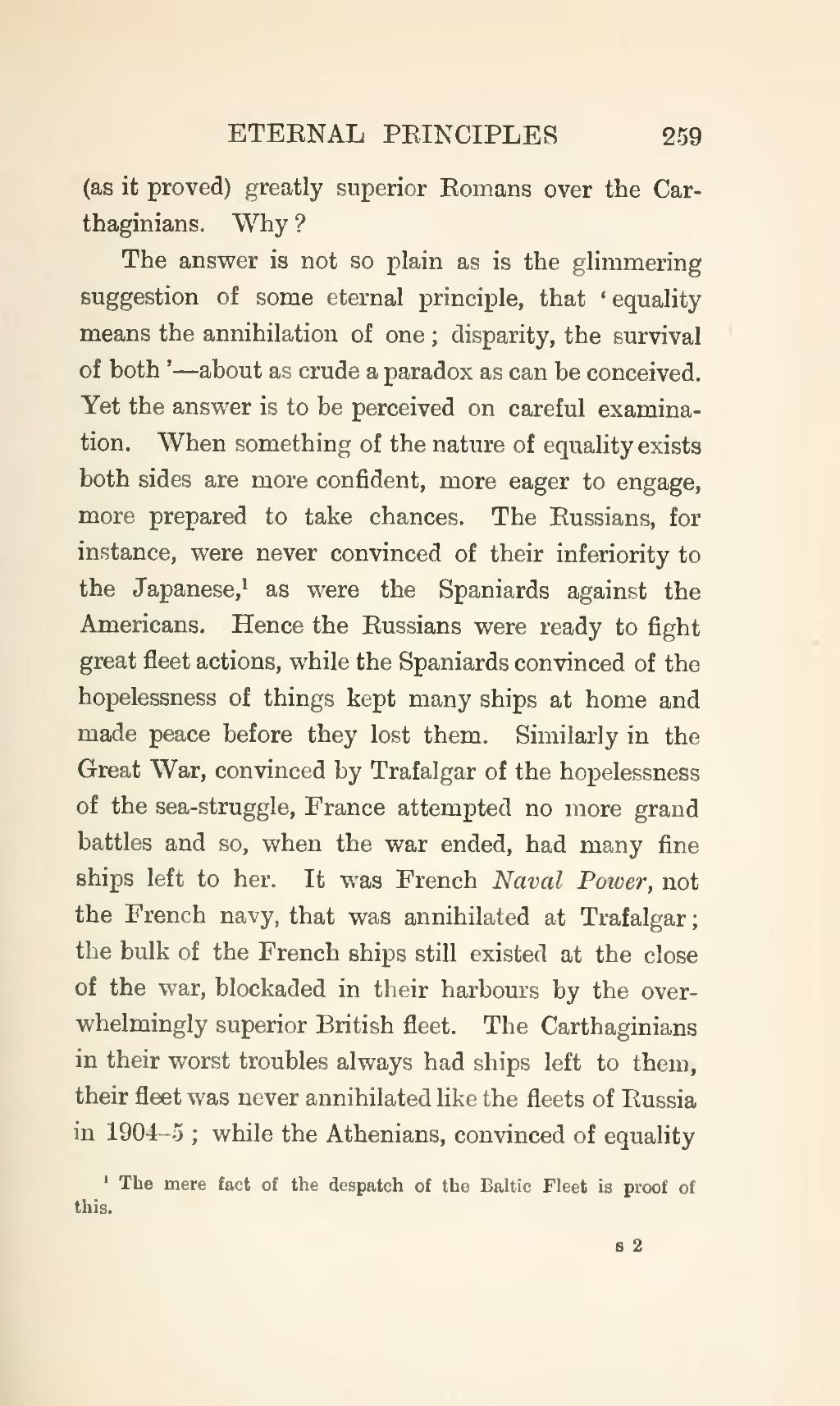(as it proved) greatly superior Romans over the Carthaginians. Why?
The answer is not so plain as is the glimmering suggestion of some eternal principle, that 'equality means the annihilation of one; disparity, the survival of both'—about as crude a paradox as can be conceived. Yet the answer is to be perceived on careful examination. When something of the nature of equality exists both sides are more confident, more eager to engage, more prepared to take chances. The Russians, for instance, were never convinced of their inferiority to the Japanese,[1] as were the Spaniards against the Americans. Hence the Russians were ready to fight great fleet actions, while the Spaniards convinced of the hopelessness of things kept many ships at home and made peace before they lost them. Similarly in the Great War, convinced by Trafalgar of the hopelessness of the sea-struggle, France attempted no more grand battles and so, when the war ended, had many fine ships left to her. It was French Naval Power, not the French navy, that was annihilated at Trafalgar; the bulk of the French ships still existed at the close of the war, blockaded in their harbours by the over-whelmingly superior British fleet. The Carthaginians in their worst troubles always had ships left to them, their fleet was never annihilated like the fleets of Russia in 1904–5; while the Athenians, convinced of equality.
- ↑ The mere fact of the despatch of the Baltic Fleet is proof of this.
